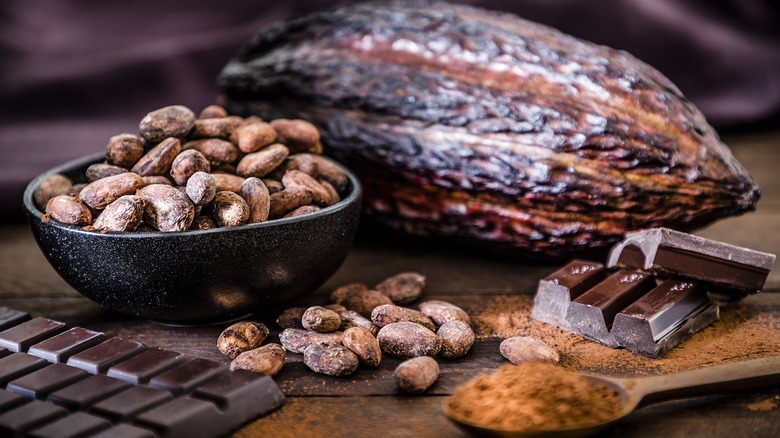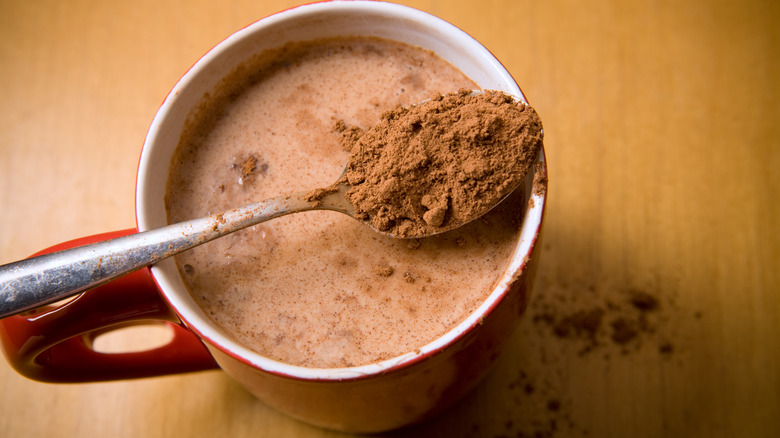Cacao: The Energizer That Proves Coffee Isn't The Only Brown Liquid Worth Drinking
For devout coffee drinkers, getting through a day without their java can feel like an insurmountable challenge. Despite the often unsavory side effects of coffee drinking, a 2023 study conducted by Drive Research revealed that nearly 90% of Americans identify as being "coffee-obsessed." With coffee so deeply ingrained in our culture, it can be hard to imagine the tides of public opinion turning away from drinking it. However, even the most uncompromising coffee fans might reconsider their position after learning about cacao.
Cacao, named after the plant from which it is produced, is the fruit of the tropical Theobroma cacao tree. While most commonly associated with making chocolate, cacao in its dried and roasted powder form (now called cocoa) also provides an impressive array of health benefits, making it an excellent substitute for coffee.
The concept of drinking brewed cacao for energy is not new, either. Mayans and Aztecs regarded the beans as a divine gift that worked as a powerful stimulant and aphrodisiac. We now know that the energizing capabilities of cacao are not from the gods but, rather, from a compound called theobromine.
Cacao is gentle but effective
Cacao contains small amounts of caffeine (the stimulant responsible for coffee's energizing effects), but the predominant compound in cacao is theobromine. Although both are stimulants belonging to the methylxanthine family, caffeine and theobromine have markedly different effects on the body. Caffeine holds influence over the nervous system (which is why too much coffee can make us anxious). Theobromine, on the other hand, enhances cardiovascular function.
Healthline says theobromine may lower the risk of heart disease and strokes. Similarly, research published in Comprehensive Natural Products II discusses how this compound acts as a vasodilator, increasing energy by sending more blood to the brain. What's more, although the effects of fat-soluble theobromine are gentler than that of caffeine — its water-soluble counterpart — they last much longer.
Beyond elevating energy levels, theobromine's ability to increase blood flow to the brain also improves cognitive function. Researchers who took part in a 2017 study published in Frontiers in Nutrition discovered that flavonoids in cacao have been linked to increased cognition, attention, processing speed, and memory. A truly nutritious alternative to coffee, cacao is packed with antioxidants and minerals like magnesium and iron. Because oxygen is carried to the brain on the backs of red blood cells fueled by iron, ensuring the body has enough iron is critical for maintaining energy.

